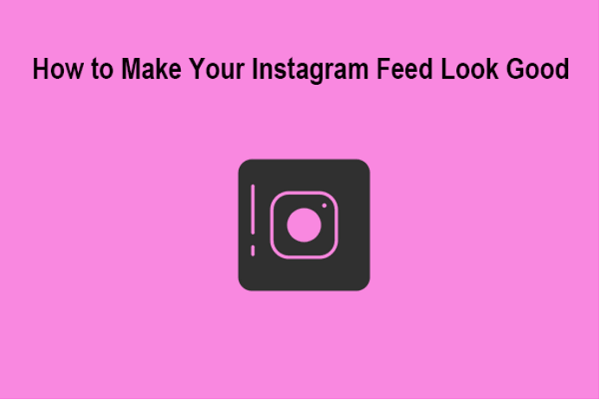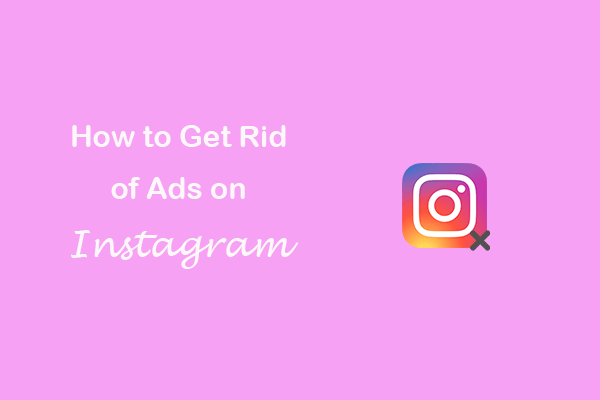In this post from MiniTool MovieMaker (one of the most prominent video editing software), you’ll learn about the differences between Xiaohongshu vs Instagram in terms of keywords and hashtags, primary feeds, target audience, and advertising.
Xiaohongshu vs Instagram – Concise Introduction
Here is a brief introduction to Instagram vs Xiaohongshu.
About Xiaohongshu
Xiaohongshu (Little Red Book or just RED) is among the most captivating and dynamic social e-commerce programs available in China at the moment.
In 2013, Charlwin Mao Wenchao and Mirand Qu Fang established Xiaohongshu as an online tour guide for Chinese consumers.
About Instagram
Instagram, sometimes known as Insta or IG, is an American social network that many of you are probably extremely acquainted with nowadays.
Mike Krieger and Kevin Systrom co-founded it. It was released for iOS users in 2010 and for Android users two years later.
Xiaohongshu vs Instagram – Major Differences
Below is a comparison of the main differences between Instagram vs Little Red Book.
Keywords and Hashtags
The way keywords and hashtags are utilized on Xiaohongshu and Instagram is an obvious distinction. Xiaohongshu employs keywords to improve search capabilities, whereas Instagram heavily relies on hashtags to classify and find content.
This mirrors cultural differences for content consumption, with Xiaohongshu users preferring comprehensive and descriptive information than short hashtags.
For instance, someone searching for lipstick on Instagram might use a hashtag such as #lipstick or #lipstickcolor. On Xiaohongshu, on the other hand, they might enter specific phrases like “winter lipstick recommendation matte” to get reviews and recommendations that are specifically tailored to their needs.
This differentiation highlights how every platform customizes its search features to accommodate user inclinations and content consumption habits.
Primary Feeds
The way in which Xiaohongshu and Instagram present their content is very different from each other. Xiaohongshu is more inclined toward written reviews and suggestions, while Instagram mostly focuses on visual posts that feature videos and images.
Users on Xiaohongshu frequently provide deep insights about lifestyle advice, travel experiences, and products, resulting in a community built on meaningful material rather than merely striking visuals.
This text-based approach on Xiaohongshu promotes in-depth debates and evaluations, which appeals to consumers who value precise information when making purchasing selections. Instagram, on the other hand, excels in visual storytelling, which enables brands to effectively market themselves through eye-catching videos and images.
Target Audience
Target audience understanding is critical to successful brand engagement strategies. Instagram draws a large user base across different demographics, age groups, and global regions, especially prevalent in Western markets.
Xiaohongshu, however, focuses mostly on young urban buyers in China, particularly those with a penchant for beauty, fashion, and lifestyle trends. Brands can adapt their marketing strategies to successfully connect with regional cultural preferences and habits because of this demographic focus.
Advertising
Both platforms provide advertising opportunities, yet their approaches vary widely. Instagram seamlessly integrates ads into the Stories, main feed, and Explore area, typically featuring sponsored posts from brands and influencers.
These ads are made to blend with organic materials, guaranteeing a seamless user experience while increasing sponsor visibility and engagement. Instagram’s powerful ad targeting capabilities allow marketers to accurately target audiences according to interests, demographics, and behaviors, making sure the right people see their messages at the right moment. Brands can select from a variety of ad formats like video ads, photo ads, story ads, and carousel ads to efficiently customize their campaigns.
Xiaohongshu, however, employs a more subtle strategy for advertising, putting sponsored content among organic postings in users’ feeds. By enabling brands to blend in with the platform’s content ecosystem, this native advertising approach fosters user trust and authenticity.
Additionally, Xiaohongshu places a strong emphasis on KOCs (Key Opinion Consumers), using reliable community members to promote services and products in an authentic way. This strategy improves engagement and builds true ties between consumers and brands on the platform.
MiniTool MovieMakerClick to Download100%Clean & Safe
Conclusion
The above is a brief introduction and main differences about Xiaohongshu vs Instagram. Choose a marketing platform that suits your needs.
You might even enjoy reading these posts:





User Comments :